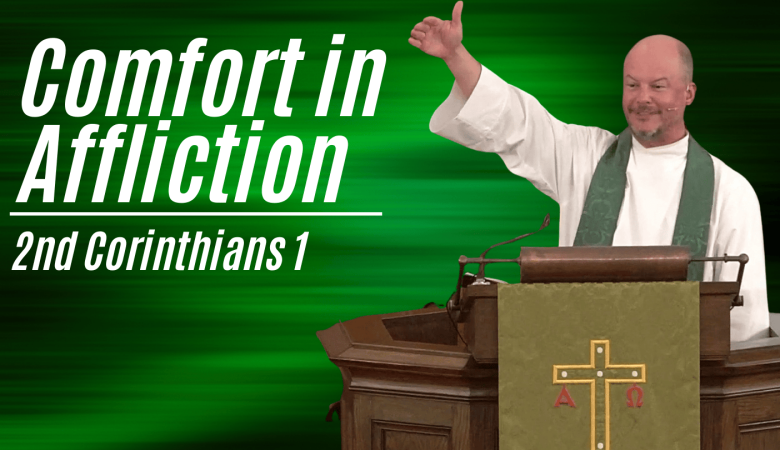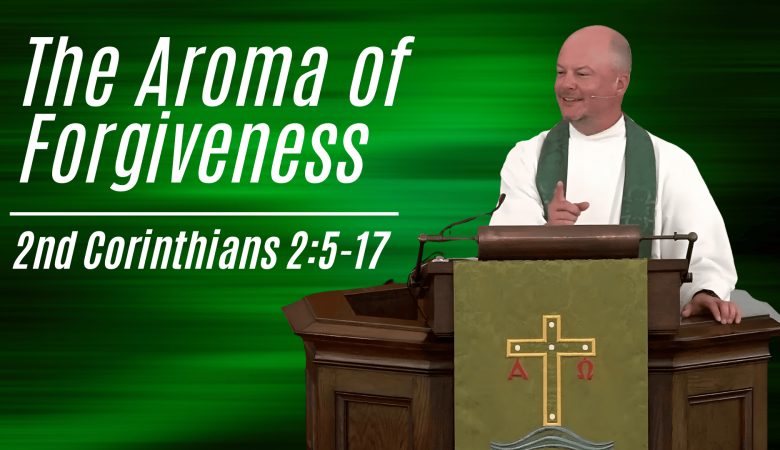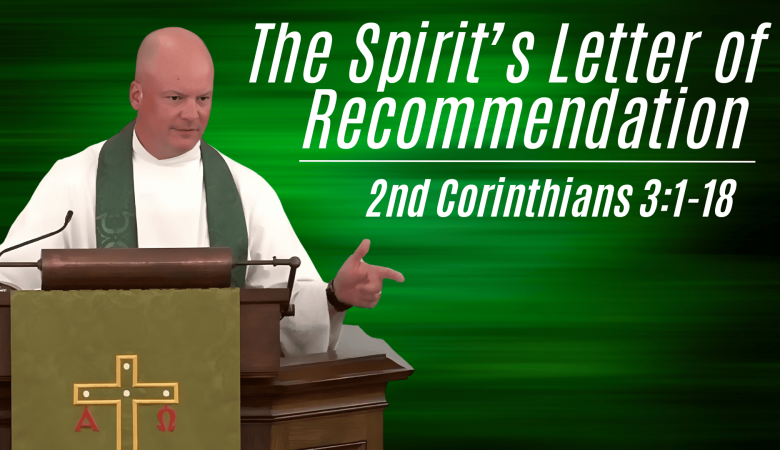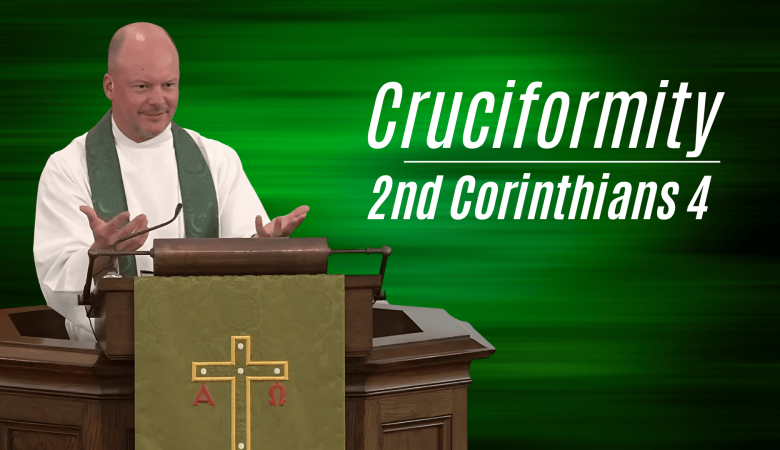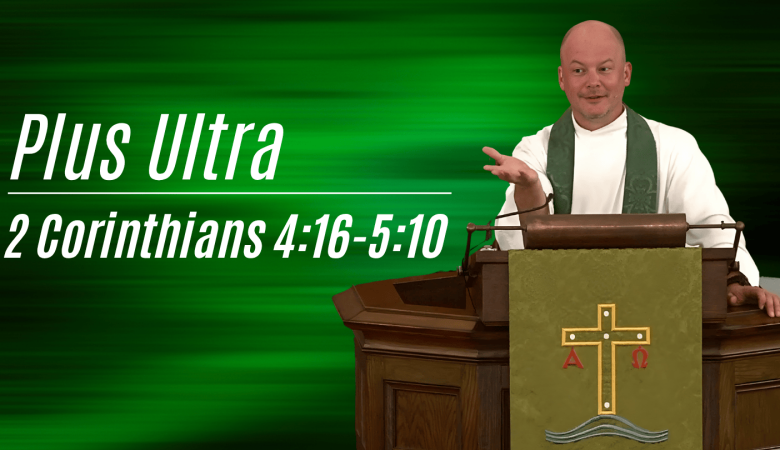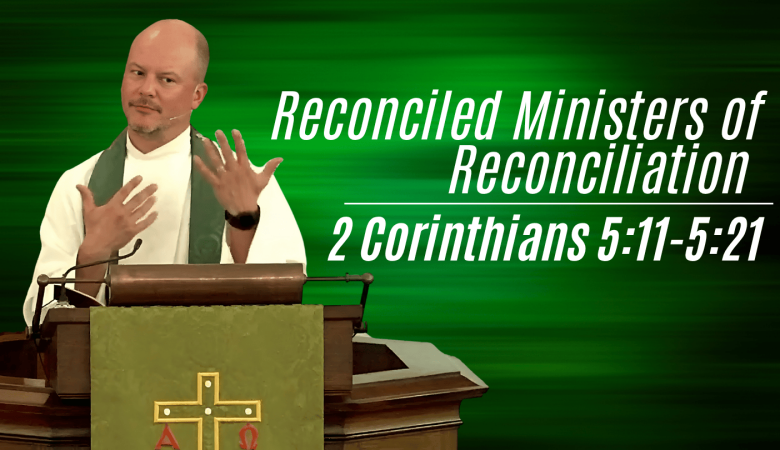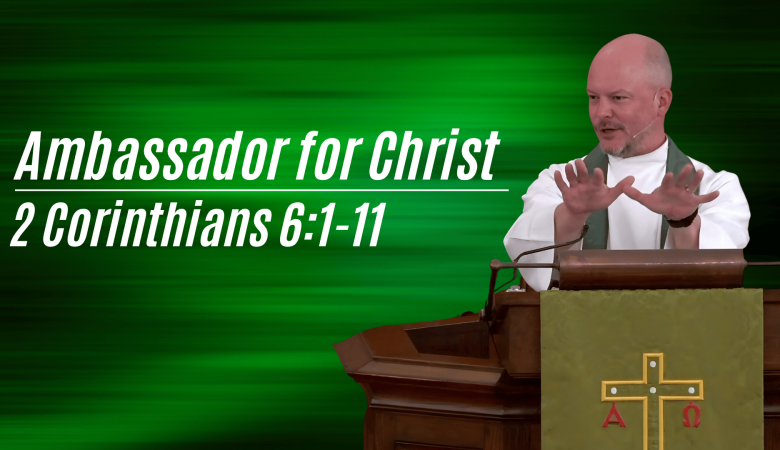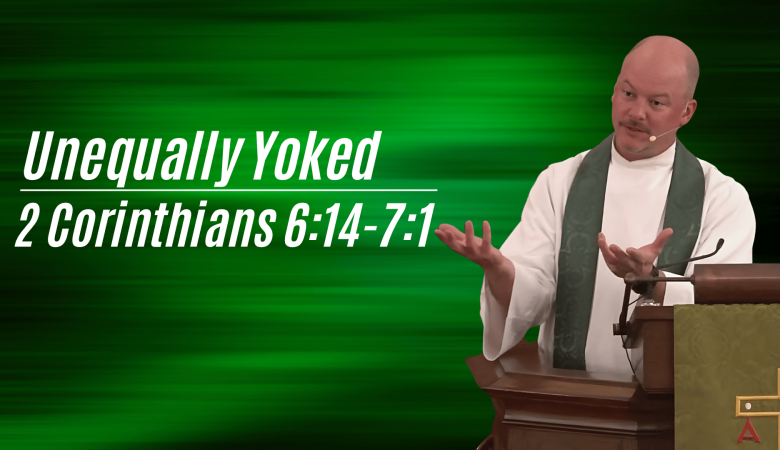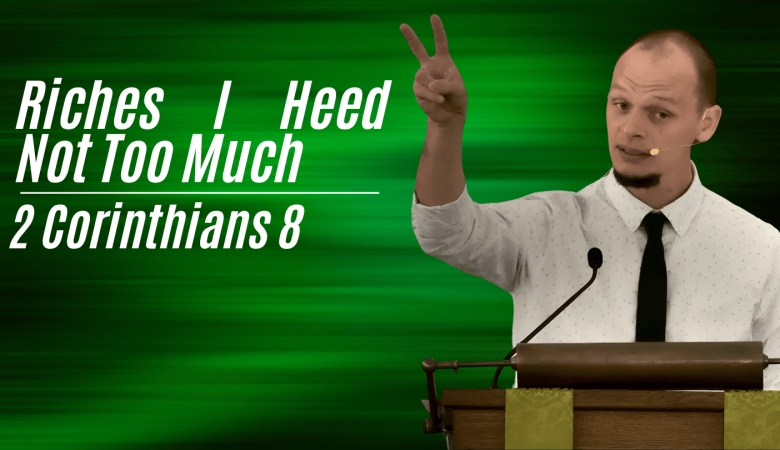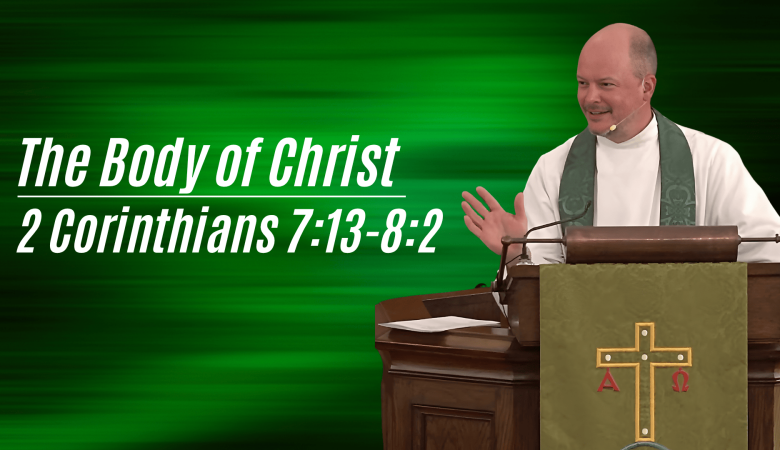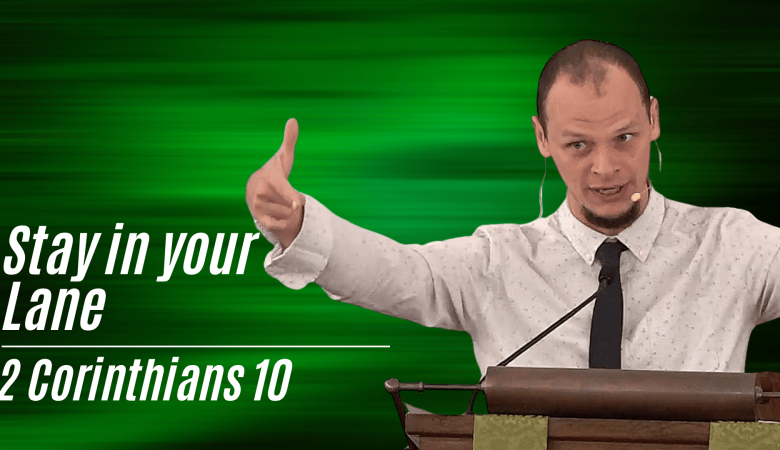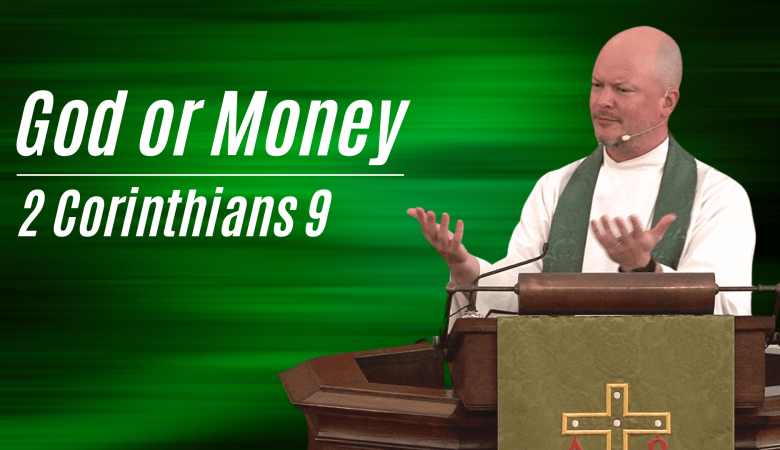Series: Power in Weakness
A Bridge Over Troubled Waters
November 02, 2025 | Peter Rowan
Passage: 2 Corinthians 7:2-16
Summary
Christians are not immune to affliction, despair, or dark nights of the soul. This truth challenges the triumphalistic view often present in contemporary Christian culture that suggests believers should be free from darkness and depression.
Two primary sources create this affliction: relational distance from others and distance from God caused by sin. The apostle Paul experienced deep affliction while waiting to hear whether the Corinthian church would receive his corrective letter. He felt isolated, with "fighting without and fear within." This relational distance mirrors experiences like children not speaking to parents, friends becoming estranged, or loved ones dying—situations that leave people feeling desperately alone.
Transcript
Lord God, we thank, we're thankful for this beautiful text that you've given to us from the pen of Paul to the Corinthian Church long ago. Second Corinthians. God, I pray that you would continue to speak to us here this morning. Lord, it's often that we come into this space and we come into other places in our lives and other conversations clouded by so much that is going on in our lives. And yet, Lord, I pray now that you would push away the cares of tomorrow, that we all have the baggage from our past that we all have, and that now you would speak truth to us and that we would be eager to receive it from you. May the words of my mouth and the meditations of our hearts be pleasing in your sight, O Lord, our rock and our redeemer. Amen.
All right. I was glad to get away last week. Don't hear what I'm not saying. I was not glad to be away from you all. Actually, I missed being with you all. And I was very blessed by getting to listen in on the service and particularly blessed by Jed's sermon. I hope you all heard that he did a wonderful job at what could be a hard passage. But I was blessed because I got to connect with friends, relationships that I had built long ago. It seems now when we lived in Richmond, that I don't have many opportunities to foster. And so it's wonderful to be with them and to connect and to play and to talk and just be with older friends.
And yet my joy in that time was broken heavily and significantly by a text of a friend that I received and the basic content of the story. This is not the place to share this, and I'm not the one to share all the details of this, but the basic gist was that one of my close friends had been arrested the day before soliciting prostitution. And as you can imagine, it was devastating. I spent most of the night talking to that friend. Actually, I was able to talk with him and talk to Melisse. Most of the night was filled with tears. The obvious difficulty that that creates with his church and his family and all that, and just the distance. Human relationships that are fractured, sin that has its ugly effects.
The next day I learned from actually a friend that I stayed with while I drove down to North Carolina, who's also a pastor. And in my past cohort, this friend that his mother in law had passed away totally unexpectedly. When I spent the night at his house, one of the things that he did was he gave me a tour of the home that is just 20ft away from his own. His in laws moved from the Midwest a few years back, and just in these last few months, they were building a house right next to their own house where they could be right next door to their grandchildren, and she unexpectedly passed away.
It's devastating, it's depressing. And I have no doubt that each one of you has stories that create a heartache that maybe throw you into a tailspin, an emotional depth that you're not sure if you will recover from. And probably for a lot of you, it's not really the life that you were expecting when you started following Jesus. Certainly it's not the life that you desire. Dark nights of life, dark nights of the soul.
Often this depression, this affliction is relational, right? It's there because of this great gap between you and others. And often it's because of sin. Often it's actually sin itself that creates this deep distance. And the relational healing and the healing from sin is often painful and hard. And oftentimes it just feels sort of impossible. What good is going to come out of this? How could this be done? So you find yourself not just in a place of deep affliction, but actually of dark despair.
And I think so this is part of what I want to say to you. I think that it's common for us to think that as Christians, we are immune from this. We're immune from that kind of darkness, those sorts of dynamics, those dark feelings, places of depression and affliction. And so when we come upon them, when we are shocked and we wonder if God actually loves us, we wonder if there's something just deeply wrong with us. And think about it. So many of our contemporary Christian songs are written for triumphalism. They're made. Actually, I read this a while ago that much of Christian music shifted after Coldplay. Interesting. And Coldplay wrote its songs with the idea of arena music. Tons of people gathered together, hyped up triumph. Listic. Not, of course, that all Coldplay songs are triumphalistic, but, you know, and then we hear, like, words like what we had just read the chapter before, by the way, I know Jed preached chapter eight. I'm back in chapter seven. So chapter six now, where we read things like what fellowship does light have with darkness? It's a rhetorical question. The answer is none. And yet sometimes our life just feels so dark.
So I want to try to dispel this idea that Christians are immune from darkness, affliction, despair, but also to tell you that there is a hope that Christians have that is Actually deeper than the darkness. Okay, so first I want to dispel this idea that we're immune from despair. Turn with me to the front cover of the Bulletin. Okay. I have three quotes there. I'm actually going to read each one of them for you.
And the first is from Charles Spurgeon. Some of you may know Charles Spurgeon. He was one of the great preachers of London in the middle of sort of second half of the 19th century. He was the pastor at London's Metropolitan Tabernacle. And when he began his ministry, there were 80 people in his church. And yet after a number of years, that church regularly was packed out with multiple services. And regularly every Sunday, mid late 19th century in London, 5,000 people would come and hear Charles Spurgeon preach. Actually, it's kind of interesting. So there was a great exhibition in London. Think of the World's Fair, which was actually the reason for a lot of cities building great buildings and monuments. Think of the Eiffel Tower or the Space Needle. For all of you lovers of Seattle, I know many of you love the Northwest. Well, the Crystal palace was built for that exhibition in 1851. And he packed it out. 23,000 people went to the Crystal palace in London to hear somebody preach. I mean, if there was somebody who was a successful minister for Jesus in the mid to late 19th century in London, it was Charles Spurgeon.
And yet, listen or look, I'm the subject of depressions of spirit so fearful that I hope none of you ever gets to such extremes of wretchedness as I go to. The greatest preacher of the age in the dark place of despair. And it wasn't sort of a one off thing. He later said from the same pulpit. Personally, I've often passed through, through the dark Valley. Christians are not immune from this affliction. We're not immune from despair.
Look at the next quote. John Henry Jowett. Some of you might know that name maybe, it's certainly not as well known, but he was the pastor of the great Fifth Avenue Presbyterian Church in New York City before he became. He actually moved to London. So the 19 late teens, where he became the pastor at Westminster Chapel. Some of you will be familiar with that church, maybe because the minister who preceded him was G. Campbell Morgan, who many considered to be one of the great preachers early on in the 20th century. And the preacher who succeeded him was none other than Martyn Lloyd Jones, who was a great pastor and preacher there in London in the 20th century. I say all that to say a towering figure, Towering preacher in 20th century New York City in London is what he said. And this is what we think, right. Often, as we approach Christianity, and maybe particularly the great greats of Christianity, you seem to imagine I have no ups and downs, but just a level and lofty stretch of spiritual attainment with unbroken joy and equanimity. By no means. I'm often perfectly wretched and everything appears murky. You might know that experience of everything appearing murky.
Finally, there's a quote about Alexander White. Alexander White was a great Scottish preacher, some of whom. Some people consider Alexander White to be the greatest Scottish preacher after John Knox, the great reformer. So this is spoken of Dr. White, resolute, as was Dr. White's character. He had seasons of deep depression regarding the results of his work in the pulpit and among his people. Christians are not immune from affliction. We're not immune from despair. We're not immune from the dark nights of depression.
And there are two kind of big reasons for this. And Paul kind of gets into these, actually. I think he. I think this is kind of the main thing that's going on in this passage in a way. And the first thing that happens is distance in human relationships. Okay, so if you look with me down at verse two, open up your Bible there to 2 Corinthians, chapter seven. Our first verse was verse two. It says. What's the title to this section? Anybody? Paul's Joy. Right. Well, listen to this. Make room in your hearts for us, which behind that is you. I. I'm not sure there's room in your heart for us. Okay. We've wronged no one. We've corrupted no one. We've taken advantage of no one. I do not say this to condemn you. All right, now, again, why would he say this? There is a distance. There's a relational distance at play. He's desiring them to actually open up their hearts to him. Because as far as he is concerned, actually, well, before he wrote this, at least there's a great distance at play. We'll get into this in a second verse four. Then he says, I'm acting with great boldness toward you. I have pride in you. I'm filled with comfort in all our affliction. I'm overflowing with joy. So there's this connection with affliction here and the darkness that's present. Even we're going to get to the joy stuff, okay? But the darkness that is present is because there is this relational distance between Paul and the people there in Corinth.
And this is often the case of how affliction actually works. Think with me. Did you hear the passage that was read from the Old Testament? He wanted to die. Why did he want to die? Why was he sitting underneath the brim tree and needing to be ministered to anybody? He thought he was alone. Right? He thought he was alone. Think of King David in the Old Testament. One of the darkest times of his life is when his rebellious son Absalom dies. Oh, my son Absalom, my son, my son Absalom. Would that I had died instead of you. Relationally distant effects of sin. Think of how the greatest category. I mean, if this isn't a challenge to how we sing, I don't know what is the greatest category of Psalms in the Book of Psalms is the category of lamentation. It's not, God has done great things. Let's praise him. It's oh, my word, where are you, my God, my God, why have you forsaken me? And what does Psalm 22 do but actually go on to say, I am distant from others? Relational distance. They so often speak about enemies being alone with regards to the very people of faith. Relational distance.
And think of your own life. Okay. So often we actually can say with Jowett, that great early 20th century preacher, that we actually are perfectly wretched and everything appears murky. The times when that feels most present is when our children aren't talking to us, or when our parents are on their deathbed, or when we experience an estrangement from a friend that we thought we were so close, or simply in the reality of death seeming to be very present to us in all different places in our lives where. Where it feels like there's such a gap, where we feel deeply alone, where there's a relational distance.
It's actually pretty similar in some ways to the Corinthian community. I mean, part of what's happening, you know, Paul mentions Macedonia here, and he's waiting for Titus. Titus comes up, and he's going to come up again. But if you remember back a few chapters, he had waited in Troas to go to the Corinthian church, even though the Corinthian church was so dear to him. He spent so much time there. He. He loved that church, but he waited because he desired to hear how they would have received his other letter. Did they receive it with a. With a. With a desire to listen? He was fearful, as we are in our communications with other humans, because there was a distance that was at play between him and this Christian community.
I think. I think this reality is so prevalent in the Christian life. And this reason is actually why so many of the great hymns that speak to us come out of hymn writers who knew this darkness, knew this affliction. Maybe the most well known of those is William Cooper, who spent much of his adult life in deep depression, the deepest of which, which he never recovered from and which we know led to a lot of at least suicidal ideation, came after his own wife's death. It's so often the case that our times of affliction come out of relational distance. Well, that's because of sin. Some of that's from living in a world that is simply so broken that the lives of those whom we love are taken from us. He wrote the masterful hymns. God moves in a mysterious way, his wonders to perform. And he knew how oddly and sadly mysterious God's ways are. He also wrote the hymn There's a Fountain Filled with Blood. He knew the anguish of our Lord Jesus.
So part of what I'm saying is that Paul's speaking to this reality of affliction that often comes out of human distance, relational distance. But also he actually does get at this idea of affliction through the idea of distance from God. Okay, because of sin. So verse five, if you look down at the next paragraph, for even when we came into Macedonia, our bodies had no rest, but we were afflicted at every turn, fighting without and fear within. I mentioned this, that he was still in Macedonia, wondering if he was going to go to the Corinthian Church. But why was that the case? Why was there this relational distance? Well, part of it was because he was calling out the sin of the Corinthian community. If you remember back to 1 Corinthians, a lot of it is correcting wrongdoing, people taking each other to court without actually engaging with one another, people having sexual relations that were very inappropriate, all kinds of things. He's calling them out. So he's saying, there's a distance that is being created in your sin between you and God.
If we go back, go farther down in that paragraph, verse 8, it says, for even if I made you grieve with my letter, I do not regret it. He's saying, there's a distance that's at play in sin. There's a distance at play with you and God in your sin. He says, I don't regret that I called it out, though I did regret it, for I see that that letter grieved you. He doesn't desire their grief. Only for a while. As it is, I Rejoice not because you were grieved, but because you were grieved into repenting. They properly understood sin. You fell to godly grief so that you suffered no less through us. Which is, say, part of the pain, part of affliction of this chapter is because Paul had corrected this sin, which say he knew that sin was creating this distance from God. Sin always distances. Sin always pushes us towards hiding, as it did in the garden long ago. And hiding always relates to darkness again.
Of course, this is so often the case in our own lives. You and I are made to be near God. Think of God again in the garden, calling them out, walk with me, where are you? I desire you. We're made for relational repair with God. Yet so often, the very thing that harms our lives, our sin, we treat lightly, worldly, brush it off, minimize it, don't really face it head on. And this always is for our harm. It always aggravates the affliction. It always invites the despair.
Think of this. It's hard to really face and name the ways that you have gone against God, because so often you actually have to face and name the ways that you have sinned against others in doing that. And so what we often do is we kind of treat this call to this grief in a worldly way. We think that if we really own it, if we really name the harm that it's caused, then our pain will only increase and we want our pain alleviated. So what we do is we often sweep it under the rug, deal with it face to face. But it's still dirty, it's still harmful, there's still no closeness at play. Sin has to be dealt with. It always has to be faced head on there to be closeness. So much of our affliction and our despair does come from our sin. I may have mentioned just a great example with my friend, but it's always the case. It's always the case.
Christians are not immune from this. Paul is writing to a church, a people of faith. He's warning them not to treat their sin in a worldly way, a way of controlling it, a way of diminishing it, way of disregarding it, but embrace the sorrow and the grief that leads to repentance and salvation.
This passage is not just about the fact that Christians are not immune from despair and affliction. It is about that. It is about how Christians, we ourselves, live in the reality of distance, humanly speaking, and distance with God. But also this passage is titled Paul's Joy, which is also a very prominent idea Here in this passage, comfort and joy. If you read through it, actually you would probably. And I said, what's the main word? Probably would have said comfort, which of course relates to affliction, doesn't it? Then also joy and rejoicing, which in some ways is the inverse of sorrow.
So look with me down to the third paragraph, verse 11. I'm going to read to the end of that paragraph for see what earnestness this godly grief has produced in you. But also what eagerness to clear yourselves. What indignation, what fear, what longing, what zeal, what punishment. At every point you have proved yourself innocent in the matter. So although I write to you, it was not for the sake of the one who did the wrong, nor for the sake of the one who suffered the wrong, but in order that your earnestness for us might be revealed to you in the sight of God. Therefore we are comforted.
Paul did write to the church to correct their sin. We know that they truly had been distant from God. And what that did, if you read through 1 Corinthians, is they just created division, division, division in the life of the church. I mean, if you think of this poem that I read, they were distant from God. And distance from God is always saying, I can do this myself. You said, don't eat that. I'm going to decide for myself, I don't need you. But that always creates a further distance from others, right? Sin is always doing this. So he does write them to correct their sin. They truly had been distant from God. He says that it wasn't just for their sake that he wrote them, but quote, in order that your earnestness for us might be revealing to you in the sight of God. He desires for them to come close to God, be in the sight of God. His comfort and their comfort came from a healed relationship with the Lord, from a repentance that leads to salvation, from a godly sorrow acknowledging their sin to a close communion with the Lord. Their grief over their sin had not been a worldly grief, but a godly grief that produced this nearness to God. What Paul actually says is their salvation.
So Paul has comfort and joy. And the comfort and joy is specifically because that distance from God which is so often related to our affliction, is being healed out of repentance and salvation. But it's not just the human, the divine sort of relationship that's at play here. He also often is talking about the human relationship. So his comfort and joy is also about the human relationships that are at play here. So look with me There at the final paragraph, verse 13, as these things go, started in the last paragraph. But look at verse 13, he says, and beside our own comfort, we rejoice still more at the mention of Titus, because his spirit has been refreshed by you all. He needed refreshment. Their relationship with God had come close. But it's not just that their relationship with God had come close. Their human relationships were beginning to mend and to heal and to give life.
While so much of our affliction in this life is in regards to our human relationships, here's the truth is that so much of our comfort and our joy is also in regards to our human relationships. The affliction that Paul mentioned early on is because of the distance between him and this community. And his comfort and his joy and his rejoicing is because of the healing of this human community. Between the Corinthian church and Titus and Paul, he was wondering, would they hear his voice? Were their hearts soft to him? Were they open towards him? Right, make room in your hearts for us. And the answer was yes. And this is how it works. His comfort in the midst of his affliction was being met by the presence of the people of God coming to him and opening their hearts to him. He has confidence in the healing of this human relationship because they have been healed first by repentance that led to salvation.
Okay, here's what I'm saying. The key for comfort in affliction is the community of Christ. The difference between godly grief and worldly grief is the work of Christ. So at the heart of the affliction and the despair that Paul is experiencing and that Titus also experiences, and also you could say that these Christian communities were experiencing was a relational, human, human relational distance and a divine relational distance. And he says, because of the work of Jesus, you can have godly grief that produces salvation. But out of the godly grief that produces salvation, you can also have the community of Christ. A community that says, let's look under that rug, let's open it up. Let's live in self dependence with one another.
So much of our sorrow and our despair in our human relationships is coming out of the fear that they're just simply unredeemable, that they're just bound to be distant. And so much of the despair that we experience in this life is that our sin is what defines us. Imagine my friend thinking right now. I've talked to them some this week. Define me. No doubt you've had that experience. It's what defines me. The Gospel addresses both of these fears. My relationship's irredeemable. My sin, what defines me? No, absolutely not. Jesus says it's as far as the east is from the west that he removes our sins from us. As far as the east is from the West. Totally gone. Godly grief produces salvation, repentance to salvation. And what it also does is it brings a healing. We could never imagine human relationships being healed, and yet they are there. They're healed.
I'm sure that in a community like ours, there are different takes on Halloween. I'm not going to take a poll on who gave out candy and who received it, but I imagine there's different takes on it and that's fine. I understand why some may not want to participate in a holiday that has really kind of become grotesque at times. But it's also the eve of the Hallowed One's day, right? Halloween is the eve of All Saints Day. And that invites us to mock the reality that sin will win. It will create such human distance and divine distance that Satan wins the day. That hiding must be the norm. That you are so irredeemably separated from those whom you love in death, that forget about it, that you're so separated because of your sin right now that you have no hope. You will once be known again and loved again because of your sin.
I mean, All Saints Day is a day to celebrate this reality of what Christ did. He so unites us to one another. We can say there's one faith, there's one Lord, one baptism, that even in death we cannot be separated because Christ rose from the dead. That is what we celebrate. And so we can mock dress up our little kids with little silly pitchforks. That's all you've got. Death. Well, it's not enough for Jesus.
But some of you know that not only is October 31, the eve of All Hallows Day, All Saints Day, but it's also Reformation Day, which we talked about in Sunday school. Sunday School plug. Let me end with Martin Luther, because that's actually the person we were talking about in Sunday School, which I didn't know that. So Martin Luther was kind of famous for mocking Satan. We talked a little bit this morning about how he once threw an ink well because he had a vision of Satan. He threw an inkwell to hit him with it. Great.
But maybe, maybe you know this, maybe you don't know this. Martin Luther was also very well, is very well known for his dark times. He was familiar with despair and with depression. He kind of puts these two ideas together when he was writing To a friend. I want him to read you the whole letter because it's just really great. But he says, try as hard as you can to despise these thoughts sent by Satan. In this sort of temptation and battle, contempt is the easiest road to victory. Laugh your enemy to scorn, laugh at Satan is what he's saying and ask to whom you are talking. By all means flee solitude, for he lies in wait most for those alone. This devil is conquered by despising him and mocking him, not by resisting and arguing.
So a short story from Luther's life said Luther was familiar with despair. He was often afflicted with depression. In fact, we know that on many occasions he actually would lock himself in his room and his family would take away, take outside of the house any implements where he could harm himself. We know that's the case. Well in the middle of one of these times, his dear beer brewing wife Katerina entered the room dressed all in mourning clothes, looking like she was heading to a funeral. And he was startled and he said, who died? And she said, no one. But by the way you're acting, it's as though God himself is dead.
But the fact of all Saints day and the fact of our comfort in our affliction, which our affliction is real. and our sorrow in the midst of our joy, in the midst of our sorrow, which is real, is that fact that God did not stay in the tomb, which does mean your relationships which cause such deep despair are not irredeemable. There is a union that you can have with other Christians that passes our understanding and that your sin is fully dealt with, that you don't have to engage with it like godly grief, you know, thinking little of it or thinking too much of it, that it alone rules the day. But on offer to you repentance that leads to life and that leads to life. God is not dead. Jesus rose from the dead. Our despair, our affliction, though real, is met with his comfort and joy. Amen. Amen.
Let's pray. Lord, thank you for your word. God, thank you for First Corinthians, which corrects so much sin, and for second Corinthians, this testimony that we can receive correction with, with a proper repentance. God, I'm thankful for the constant testimony of your word from the giants of the faith that go before us, that we're not alone in our dark nights, in the sadness that overwhelms us. You know it fully, Lord Jesus. We think of how you there in the garden were alone. Your disciples fell asleep when you asked them to be to stay awake. How there on the cross, Lord Jesus, you said, my God, my God, why have you forsaken me? Me.
But also, Lord, we. We praise you that there on the cross our sins were dealt with entirely and completely. That they were removed from us as far as the east is from the West. So, Lord, in the midst of a. A life that is more often than not marked by sorrow, we. We who can be called the holy ones of God, the saints of the everlasting God, can have comfort and joy. Lord, would you make us to be a church that meets one another in those places that does not pretend to have it together, that certainly celebrates the triumph of the empty tomb that knows the deep sorrow of Holy Saturday? God, would we live in these realities of sin and its ugly effects of relational estrangement, divine distance. And also, Lord, would we live in the reality of resurrection, holding together the cross and the empty tomb, those who die with Christ would also be risen with him. In his name we pray. Amen.
Series Information
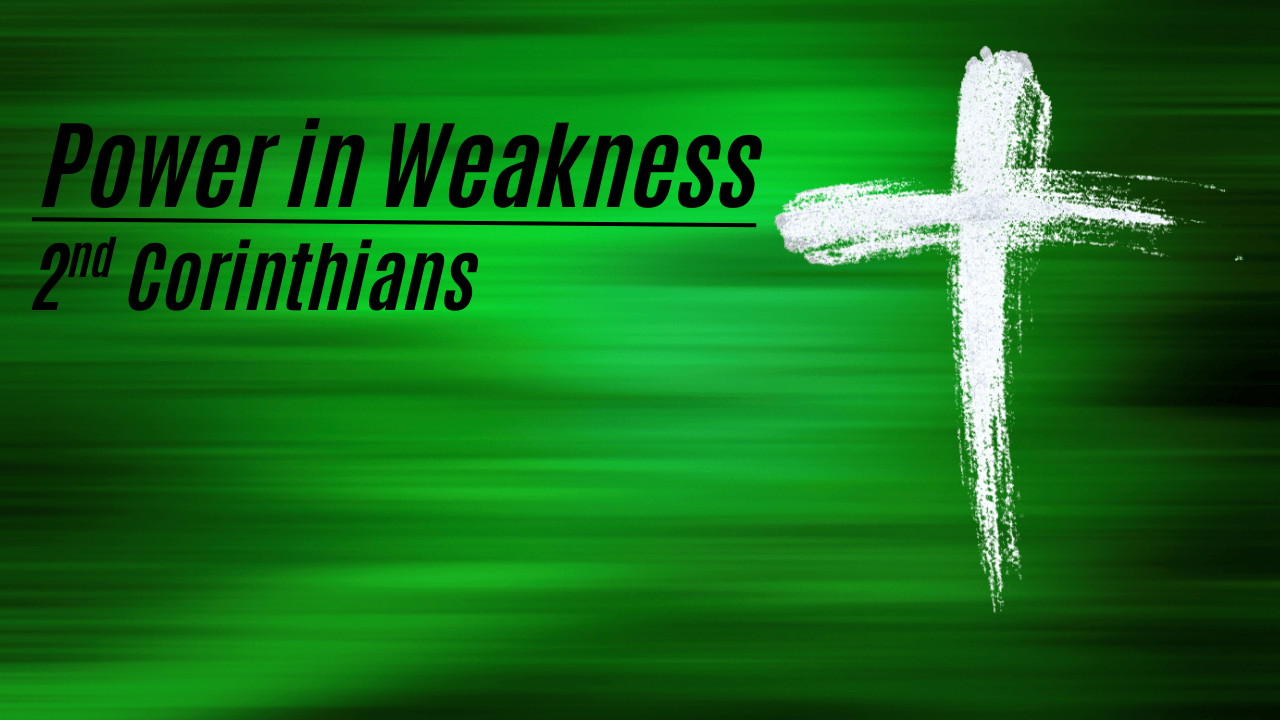
Second Corinthians is Paul’s defense of his love for and love toward the church in Corinth. Paul’s defends his apostolic ministry against critics who question his authority. He recounts profound suffering—beatings, imprisonment, near-death experiences—yet refuses to boast except in his weaknesses. Through personal vulnerability, Paul reveals Christ's power working most effectively in human frailty. He describes his mysterious "thorn in the flesh," where God's response becomes the letter's centerpiece: "My grace is sufficient for you, for my power is made perfect in weakness." Paul embraces this paradox, demonstrating that divine strength flows through broken vessels. His authenticity and struggles validate rather than undermine his ministry, proving that God's power shines brightest through human limitation and dependence.

